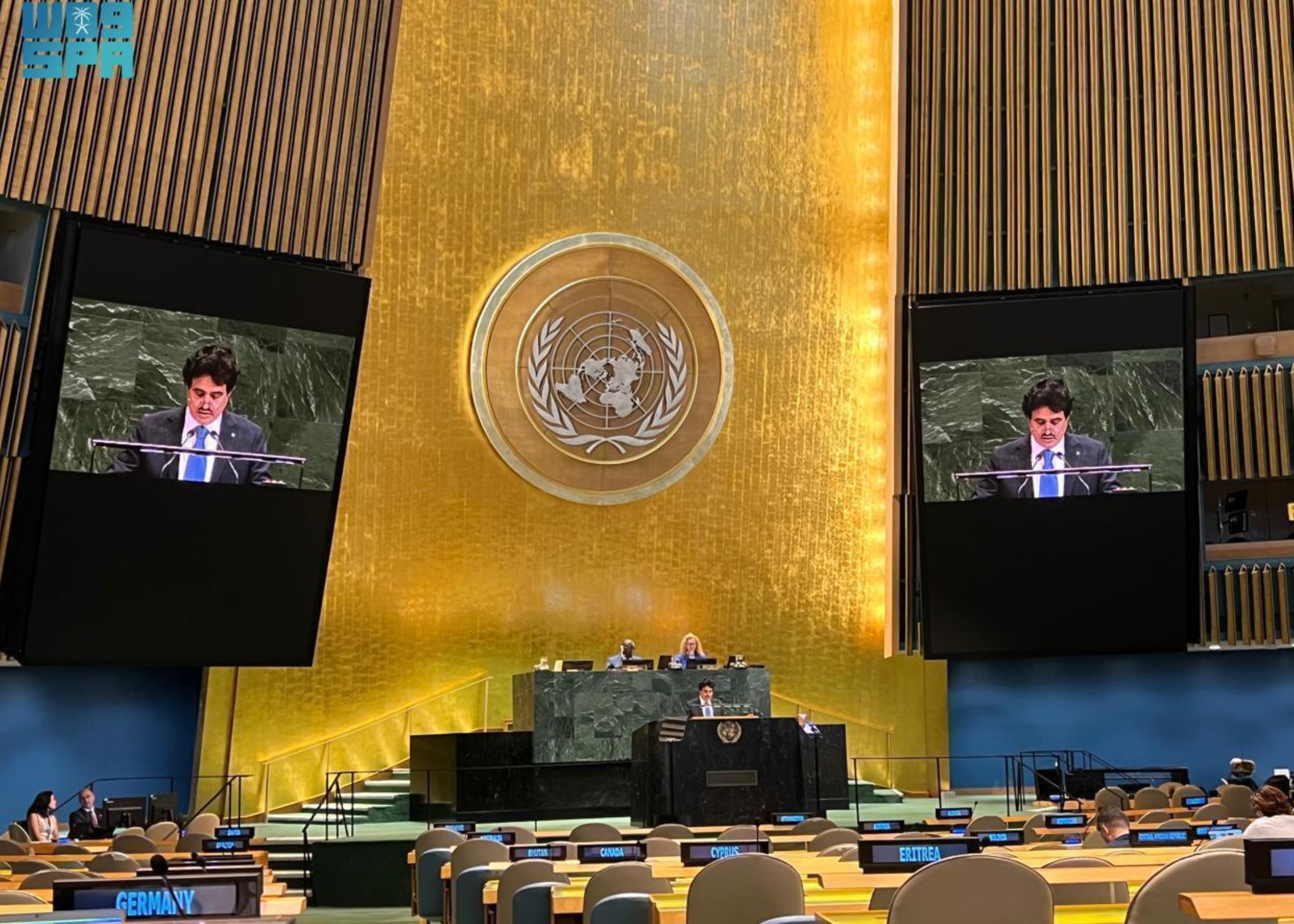
Meeting on Sand, Dust Storms Commends Saudi Efforts in Early Warning, Cooperation
A high-level meeting on sand and dust storms, held at the United Nations headquarters in New York City, commended the Kingdom of Saudi Arabia’s global initiative to strengthen early-warning systems for sand and dust storms.
The meeting also highlighted the importance of the Kingdom’s leadership in fostering cooperation among World Meteorological Organization (WMO)-recognized regional centers for combating dust phenomena, as well as its financial contribution of $10 million over five years to build the capacities of countries affected by such storms.
Saudi Arabia reaffirmed its commitment to supporting climate and environmental action and to promoting scientific and technical cooperation to address the impacts of sand and dust storms at the local, regional, and international levels. These efforts are aligned with the Kingdom’s strategic vision and ongoing endeavors to protect the environment and achieve sustainability.
Vice President of the National Center for Meteorology (NCM) and Executive Chief of the Sand and Dust Storm Regional Center Jumaan Al-Qahtani stated that the Kingdom continues its efforts to combat dust phenomena as part of Vision 2030 through key initiatives including the Saudi Green Initiative, the Middle East Green Initiative, and the establishment of specialized centers such as the Regional Center for Sand and Dust Storms, the Climate Change Center, the Cloud Seeding Program, and the National Center for Vegetation Cover Development.
He noted that the establishment of the Regional Center in Jeddah in 2022 was a strategic step within an international framework aimed at improving dust storm forecasting and enhancing early-warning capabilities. The center works to support alert systems, facilitate data exchange, build capacity, and mitigate the health and economic impacts of dust storms.
Al-Qahtani announced the Kingdom’s readiness to host the second International Conference on Sand and Dust Storms in 2026 to sustain scientific momentum, assess progress made since the Riyadh Declaration, and continue exploring the challenges and solutions related to these phenomena.
Al-Qahtani pointed out that Saudi Arabia’s efforts to combat land degradation have led to the planting of more than 142 million trees, the restoration of over 436,000 hectares of degraded land, and the protection of 18% of the Kingdom’s territory under the Internaitonal Union for Conservation of Nature-supported 30x30 plan. Additionally, seven royal reserves have been established, representing 13.5% of the Kingdom’s total area.
In terms of international cooperation, he highlighted the Kingdom’s initiative to enhance early-warning systems for dust storms, including a financial contribution of $10 million to develop global models and build capacities, as well as partnerships with the UN Convention to Combat Desertification (UNCCD) and the UN Environment Programme (UNEP) to formulate a comprehensive plan to reduce dust sources.








